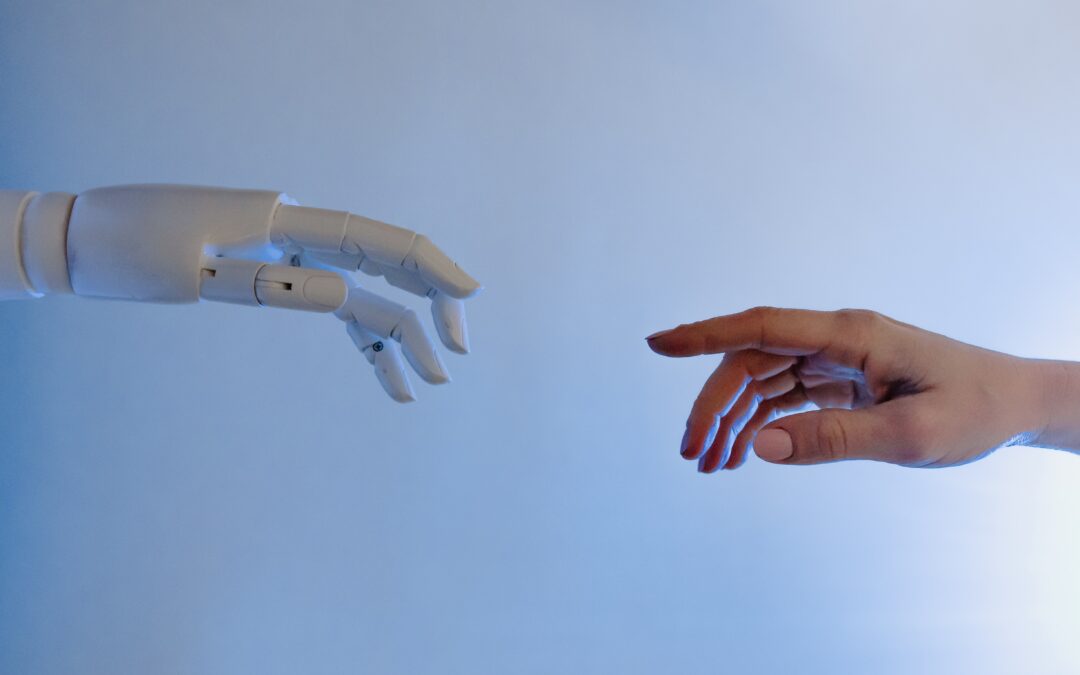Written by Chatty Garrate
The workplace is under more pressure than ever before. Globalization made it more competitive and job security less assured. The traditional nine-to-five workday is becoming a thing of the past as employees are expected to be available 24/7 and juggle multiple roles—no wonder these changes have taken a toll on mental health.
In fact, the National Institute of Mental Health found that nearly one in five adults in the United States has a mental illness. And according to a recent study by the World Health Organization, depression is now the leading cause of disability worldwide.
Mental Health Crisis and Artificial Intelligence
Mental health crisis significantly impairs an individual’s cognitive, social, or emotional functioning to the point where they can no longer cope with the demands of their work. It can manifest in several ways, including anxiety, depression, substance abuse, or suicide.
While there is no silver bullet for this crisis, many people see the potential of Artificial Intelligence (AI) as one valuable tool in addressing these mental health challenges. This is because AI can perform tasks typically requiring human intelligence, such as understanding natural language and recognizing patterns, making it well-suited to help detect mental health issues early. Though AI has been around for centuries, it is only in recent years that it has become a subject for addressing workplace mental health crises.
Ways AI Can Help Address Workplace Mental Health Crisis
AI can help reduce stress and burnout.
Using AI to automate repetitive or time-consuming tasks reduces stress and burnout in the workplace. For instance, organizations can use an AI chatbot to handle customer service inquiries to reduce the number of time employees spend dealing with routine questions.
In addition, AI virtual assistants can handle tasks such as scheduling meetings, sending reminders, and managing email. This can help take some of the administrative burdens off employees’ shoulders and allow them to focus on more critical tasks.
AI can help create a more flexible work environment.
Flexibility is vital when it comes to workplace mental health. AI can help create a more flexible work environment by allowing employees to work from anywhere at any time. For instance, cloud-based AI applications can be accessed from any device, whether employees work from home, on the road, or in the office. This allows employees to have the flexibility to work when and where they are most productive, which can help to reduce their stress levels.
AI can help devise a more personalized approach to employee development.
Using data from performance reviews, engagement surveys, and other sources, AI can provide managers with insights into each employee’s strengths, weaknesses, and areas of opportunity. This information can create customized employee development plans tailored to each employee’s needs. Personalized development plans can help to engage and motivate employees as they feel that their individual needs are being addressed.
AI can help identify early warning signs of mental health issues.
AI can play a role in determining early warning signs of mental health issues. By tracking employee behavior and patterns, AI can provide insights that may help to recognize when someone is at risk of developing a mental health problem.
For instance, if an employee’s sleeping patterns change or they start taking more sick days, this could indicate that something is wrong. AI can help to flag these changes so that employers can provide early intervention for the employee’s needs before it’s too late.
AI can help connect employees.
One of the challenges of the modern workplace is that employees are often spread out across different locations. This can make them feel lonely and isolated. AI can help to combat this by helping employees stay connected.
Companies can use AI-powered applications to facilitate virtual team-building exercises or create digital workspaces where employees can collaborate on projects in real time, regardless of location.
AI can help find meaning in work.
Employees who feel their work is purposeful are likelier to be engaged and motivated. AI can help to create a sense of meaning in work by providing employees with personalized recommendations for tasks and projects that align with their skills and interests. By connecting employees with opportunities that fit their strengths, AI can help them to feel like their work is valuable and that they are making a meaningful contribution to the organization.
Moreover, AI can generate reports and insights showing employees their work’s impact that can help create a sense of purpose by demonstrating how individual employees contribute to the organization’s larger goals.
AI can help address potential workplace issues.
Organizations can use AI to monitor employee communications for signs of potential workplace issues, such as harassment, discrimination, or conflict. By flagging these communications for review, AI can help ensure that these issues are tackled promptly and effectively.
Also, AI can help generate reports identifying behavior patterns that may indicate potential problems to create policies or procedures that prevent these issues from occurring in the first place.
AI can help build a culture of mental health awareness.
Mental health is often seen as a taboo topic, but AI can help to break down these barriers by starting conversations about mental health in the workplace. AI-powered chatbots can provide employees with information about mental health resources and support and can also be used to report any concerns they may have anonymously.
By creating a culture of mental health awareness, employees will feel more comfortable seeking help when needed, and employers will be equipped to address any issues that may arise.
Conclusion
AI is just one piece of the puzzle regarding addressing the workplace mental health crisis. It offers potential solutions to lessen the challenges it poses. It’s sure that as more and more organizations look for ways to support their employees’ mental health, AI will likely play a more prominent role.

